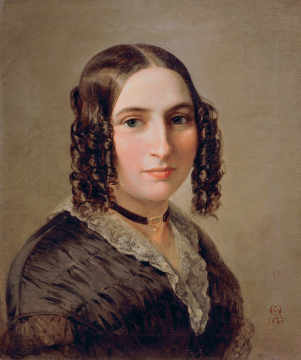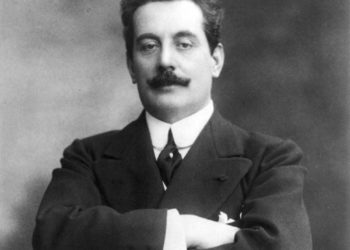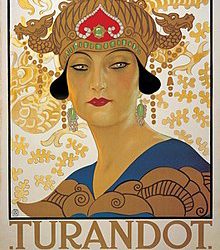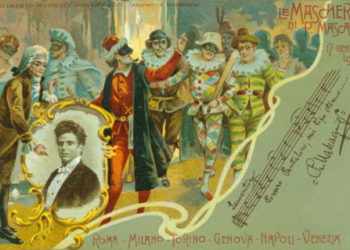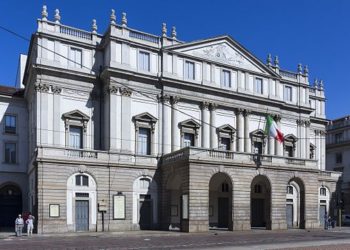The life of Fanny Mendelssohn, sister of the most famous Felix, author of about 500 works but stayed off the grid for too long.
Fanny Mendelssohn , sister of Felix, was a musician, pianist and composer ignored until almost to the present day. Her path wasn’t different than a lot of other 19th century female artists overshadowed because of prejudices and a mentality that relegated them just to a role of wife and mother. In the 19th century, music for a woman was at best an “ornament”, a completion of her education, but it couldn’t become a profession. Fanny, born in Hamburg on November 14th 1805, was the eldest of four brothers: Felix, Rebecka and Paul. She belonged to a rich and cultured family of Jewish bankers: her parents Abraham and Lea manifested an uncommon mental openness and boasted illustrious relatives: Moses Mendelssohn, mathematician and influential philosopher of German Enlightenment and Dorothea Mendelssohn married to Friedrich von Schiegel, leading representative of German romanticism. The mother Lea, related to high diplomatic dignitaries, was a good keyboard player. The family moved to Berlin where they used to spend time with intellectuals, philosophers and scholars, men of science and transient musicians who were honored to participate to the Sunday concerts that the Mendelssohn family organized in their living room. Fanny and her three siblings enjoyed a privileged economic condition and cultural stimuli, as it rarely happened. The parents provided their children with the best teachers and music represented an important discipline for each one. Fanny studied music with the same teachers as Felix: first with her mother Lea, then with Marie Bigot in Paris. Back in Berlin, the two brothers were entrusted to Berger for the piano and to Zelter for the composition.
Fanny Mendelssohn has revealed a remarkable early talent, prodigious memory and compositional capacity since adolescence. She was a composer and an excellent pianist, but she couldn’t neither perform in public, nor publish her works on her behalf. Some of her lieder would have converged in works 8 and 9 of Felix, but her name didn’t appear alongside that of her brother. Among these, the one entitled Italien was the favorite of Queen Victoria. The father and the brother repeatedly appeared to be opposed to a public display of her talent. Fanny reluctantly accepted these restrictions, but as she would write later, she felt she had to “please” her father and brother and she wouldn’t have done anything disappointing for her loved ones. But she suffered that condition because she knew she was sacrifying her identity. She continued to compose because music was the center of her life and the fluency of the compositional technique allowed her to transform the poetic texts of Heine, Goethe, Grillparzer in as many lyrics overflowing with feeling and lyricism. After her father’s death, Felix influenced her and repressed her ambitions as a musician, but another man, her husband, the painter Wilhelm Hensel, believed in her, encouraged her to compose, helped her to gradually free herself from conditioning and prejudices.
In 1839 the Hensel family visited Italy, a journey that would last a year. Fanny Mendelssohn finally felt like a free woman and a musician appreciated by other musicians. The Roman Carnival was all over in the streets and she had fun too. The Hensel spouses compiled the Reisealbum, their private travel diary: Fanny composed, she never felt so free and creative, Wilhelm painted delicate watercolors that reflected those fantastic places that inspired him. She was happy, she felt fulfilled and finally she took the decision to publish her works. She acted by warning her brother: “Don’t be sorry, it’s a decision that I have taken completely autonomously”, she wrote. But it was late: death catched her by surprise almost immediately after her last effort: a splendid Trio for her sister Rebecka. On May 14th 1847 Fanny was at the piano: she was trying a composition of her brother, but a stroke struck her, who died at only 42 years. In November of the same year Felix also died.
Fanny has left us about 500 works, which assure her a prominent place in the 19th century music literature. Fanny deserves a well-earned recognition and her memory is renewed in the multiplication of publications in her name and concerts dedicated to her.
Article written by Maria Primiceri – teacher of Piano at the Tito Schipa Conservatory of Lecce and scholar of women musicians with events and conferences on Nannerl Mozart, the wives of Bach, Maria Szymanowska, Fanny Mendelssohn
Do you want to contact the author?
Send an email to :
mariaprimiceri@libero.it
Maria is available for projects and conferences about Fanny and other great women in music.




